My Fantasia Festival, Day 11 (part 1): Hal and Giovanni’s Island
 There are a couple of things I’ve noticed in my Fantastia experience so far which I haven’t yet mentioned. The first is the general friendliness of people: the ease I’ve had in getting into conversations while in line for a film, or in the theatre waiting for a movie to start. I’ve met other writers, a programming director for a Mexican horror film festival (check it out), and, on the Sunday before last (July 27), a DJ with Concordia University’s radio station, CJLO.
There are a couple of things I’ve noticed in my Fantastia experience so far which I haven’t yet mentioned. The first is the general friendliness of people: the ease I’ve had in getting into conversations while in line for a film, or in the theatre waiting for a movie to start. I’ve met other writers, a programming director for a Mexican horror film festival (check it out), and, on the Sunday before last (July 27), a DJ with Concordia University’s radio station, CJLO.
Fantasia’s hosted on Concordia’s downtown campus, and DJ Saturn de Los Angeles is one of a number of CJLO DJs who play music before the start of films in the Hall Theater, while the audience is filing in and finding their seats. And this is the other element of the festival I’ve not yet written about, the pre-film music. As selected by the DJs up at the back of the Hall to fit with the movie about to play, it sets the tone and prepares you for what you’re about to watch. I’ve found the selections appropriate and inventive, adding a little extra style to the Fantasia experience. The music raises your excitement level just a bit, like hearing the pre-show music at a rock concert. You know something’s coming, and when the music stops, your attention focuses on the screen that much more.
Saturn plays Japanese pop and indie rock in their weekly show, so it’s appropriate I met them before the first of two anime films I’d see on the day. We were waiting for the North American premiere of Hal, a character-oriented science-fiction anime that’d be preceded by a short film called Sonny Boy and Dewdrop Girl. After Hal, which was shown in the mid-sized D.B. Clarke Theater, I’d head upstairs to the Hall to see the Canadian premiere of another anime, Giovanni’s Island. I’d then go on to see two more films that Sunday, both documentaries (and coincidentally met more CJLO folks in line at the later one), but I’ll be discussing those in another post. Here, I want to consider the two animated films.
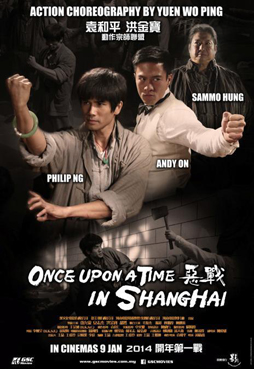 I’m going to do something a little different in this instalment of my diary of the Fantasia film festival: I’m going to write about two movies in the reverse order from which I saw them. I watched both on Saturday, July 26, and it so happened that the second one struck me as a perfectly fine movie of the sort of movie that it was, while the first seemed a little bit more.
I’m going to do something a little different in this instalment of my diary of the Fantasia film festival: I’m going to write about two movies in the reverse order from which I saw them. I watched both on Saturday, July 26, and it so happened that the second one struck me as a perfectly fine movie of the sort of movie that it was, while the first seemed a little bit more.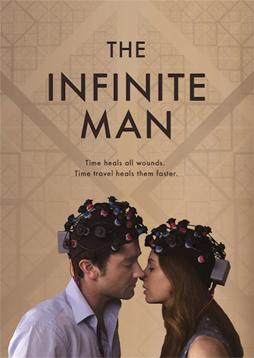
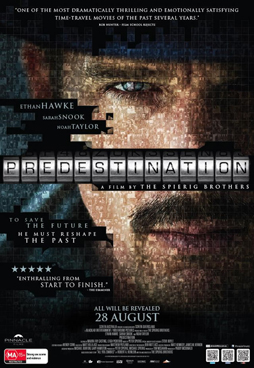 On Thursday, July 24, I saw two movies. One hinted at the supernatural. The other was a surprisingly faithful adaptation of a classic sf story. On the surface, these films didn’t seem to have a lot in common. But to me they raised similar questions about free will, about how people change, and about whether one can really choose that change.
On Thursday, July 24, I saw two movies. One hinted at the supernatural. The other was a surprisingly faithful adaptation of a classic sf story. On the surface, these films didn’t seem to have a lot in common. But to me they raised similar questions about free will, about how people change, and about whether one can really choose that change.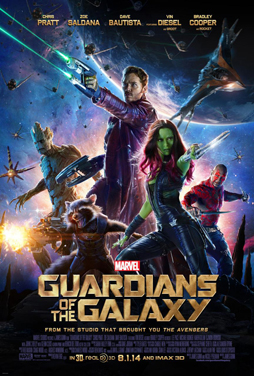 I’m going to break from the chronological record I’ve been keeping of the Fantasia Festival to write a bit here about a movie I saw last night. I’m going to do this on the off chance that my doing so may help some of you decide what you’ll be doing with a couple hours of your upcoming weekend. On Tuesday at 7:30, Fantasia presented the Canadian premiere of Guardians of the Galaxy and I was there.
I’m going to break from the chronological record I’ve been keeping of the Fantasia Festival to write a bit here about a movie I saw last night. I’m going to do this on the off chance that my doing so may help some of you decide what you’ll be doing with a couple hours of your upcoming weekend. On Tuesday at 7:30, Fantasia presented the Canadian premiere of Guardians of the Galaxy and I was there.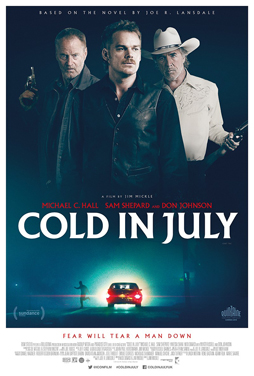 I’ve mentioned before that the Fantasia Festival has, logically enough, programmed what look to be their most popular movies in the big Hall Theatre. That often means unabashed genre movies — movies that aim at telling a certain kind of story a certain kind of way. A genre’s a set of conventions and a storyteller can play against those conventions or use them to get at whatever they want, as they see fit. And, especially as genres become better-known by audiences, there’s a natural inclination to mix conventions, to set genre against genre within a single story. The trick, of course, is that whichever angle you take, you should try to do it well.
I’ve mentioned before that the Fantasia Festival has, logically enough, programmed what look to be their most popular movies in the big Hall Theatre. That often means unabashed genre movies — movies that aim at telling a certain kind of story a certain kind of way. A genre’s a set of conventions and a storyteller can play against those conventions or use them to get at whatever they want, as they see fit. And, especially as genres become better-known by audiences, there’s a natural inclination to mix conventions, to set genre against genre within a single story. The trick, of course, is that whichever angle you take, you should try to do it well. Last Sunday, June 20, I saw four movies.
Last Sunday, June 20, I saw four movies. 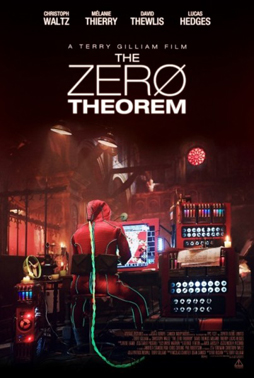 Before continuing my Fantasia diary with a look at the movies I saw last Sunday, I want to focus in on one specific film that struck me as an utterly brilliant piece of science-fiction satire. I think it divided the audience; I’ve heard and seen reactions from people who were left cold by it as well as from people who loved it as much as I did. Perhaps that’s not surprising. The movie is The Zero Theorem, directed by Terry Gilliam from a script by Pat Rushin, and it is as idiosyncratic and persistently individual as you’d expect from Gilliam.
Before continuing my Fantasia diary with a look at the movies I saw last Sunday, I want to focus in on one specific film that struck me as an utterly brilliant piece of science-fiction satire. I think it divided the audience; I’ve heard and seen reactions from people who were left cold by it as well as from people who loved it as much as I did. Perhaps that’s not surprising. The movie is The Zero Theorem, directed by Terry Gilliam from a script by Pat Rushin, and it is as idiosyncratic and persistently individual as you’d expect from Gilliam.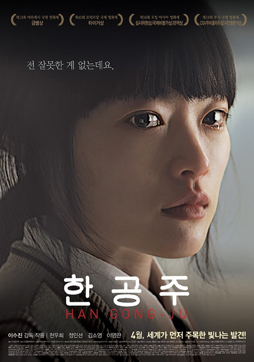 To my mind, if you’re a critic of any integrity, sooner or later the criticism you write will lead you to challenge your views of yourself as well as your views of the art you experience. That’s the nature of much truly effective art: it makes you look at yourself and think about yourself in new ways. If you’re trying to articulate your reaction and assessment of such a work, honesty will compel some self-examination as well. Powerful art requires an acknowledgement of one’s subjective response.
To my mind, if you’re a critic of any integrity, sooner or later the criticism you write will lead you to challenge your views of yourself as well as your views of the art you experience. That’s the nature of much truly effective art: it makes you look at yourself and think about yourself in new ways. If you’re trying to articulate your reaction and assessment of such a work, honesty will compel some self-examination as well. Powerful art requires an acknowledgement of one’s subjective response. Saturday was my first really big day at Fantasia. On weekdays, the festival usually starts its screenings at 5 or 6, with the occasional matinée at 3. Weekend days kick off around noon, meaning many more movies are on offer. Which also incidentally increases the risk of losing track of the need for a meal. I ended up seeing five movies last Saturday, with a dinner break after the first three. So this post will cover those first three films and I’ll have another up shortly looking at the next two. (In general it seems like I’m going to have more Fantasia posts than I’d thought, as I try to keep up with the films I’ve watched.)
Saturday was my first really big day at Fantasia. On weekdays, the festival usually starts its screenings at 5 or 6, with the occasional matinée at 3. Weekend days kick off around noon, meaning many more movies are on offer. Which also incidentally increases the risk of losing track of the need for a meal. I ended up seeing five movies last Saturday, with a dinner break after the first three. So this post will cover those first three films and I’ll have another up shortly looking at the next two. (In general it seems like I’m going to have more Fantasia posts than I’d thought, as I try to keep up with the films I’ve watched.)